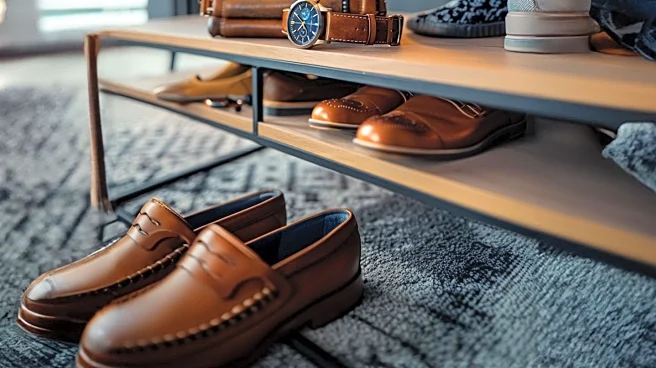What is the story about?
What's Happening?
Experts are advocating for a no-shoes policy in homes to reduce the introduction of germs and toxins. According to Lisa Cuchara, a professor of biomedical sciences, shoes can carry bacteria, pollen, and even traces of feces into homes. This poses health risks, especially for households with young children, elderly, or immunocompromised individuals. The Cleveland Clinic also notes that shoes can track in lead and other harmful substances. Etiquette expert Elaine Swann suggests a hybrid approach, asking guests to remove shoes for longer stays while allowing them for brief visits, with cleaning afterward.
Why It's Important?
Implementing a no-shoes policy can significantly reduce the amount of harmful contaminants brought into homes, potentially improving indoor air quality and reducing health risks. This practice is particularly beneficial for vulnerable populations, such as children and the elderly, who are more susceptible to illnesses caused by these contaminants. By adopting this policy, homeowners can create a cleaner and safer living environment, which is increasingly important in urban areas where shoes are exposed to more pollutants.
Beyond the Headlines
The cultural shift towards shoe-free homes reflects a growing awareness of indoor environmental quality and its impact on health. This trend may also influence home design, with more emphasis on creating welcoming entryways that accommodate shoe removal. Additionally, the rise of home cleaning technologies, such as robot vacuums, supports this movement by offering convenient ways to maintain cleanliness even when shoes are worn indoors.















